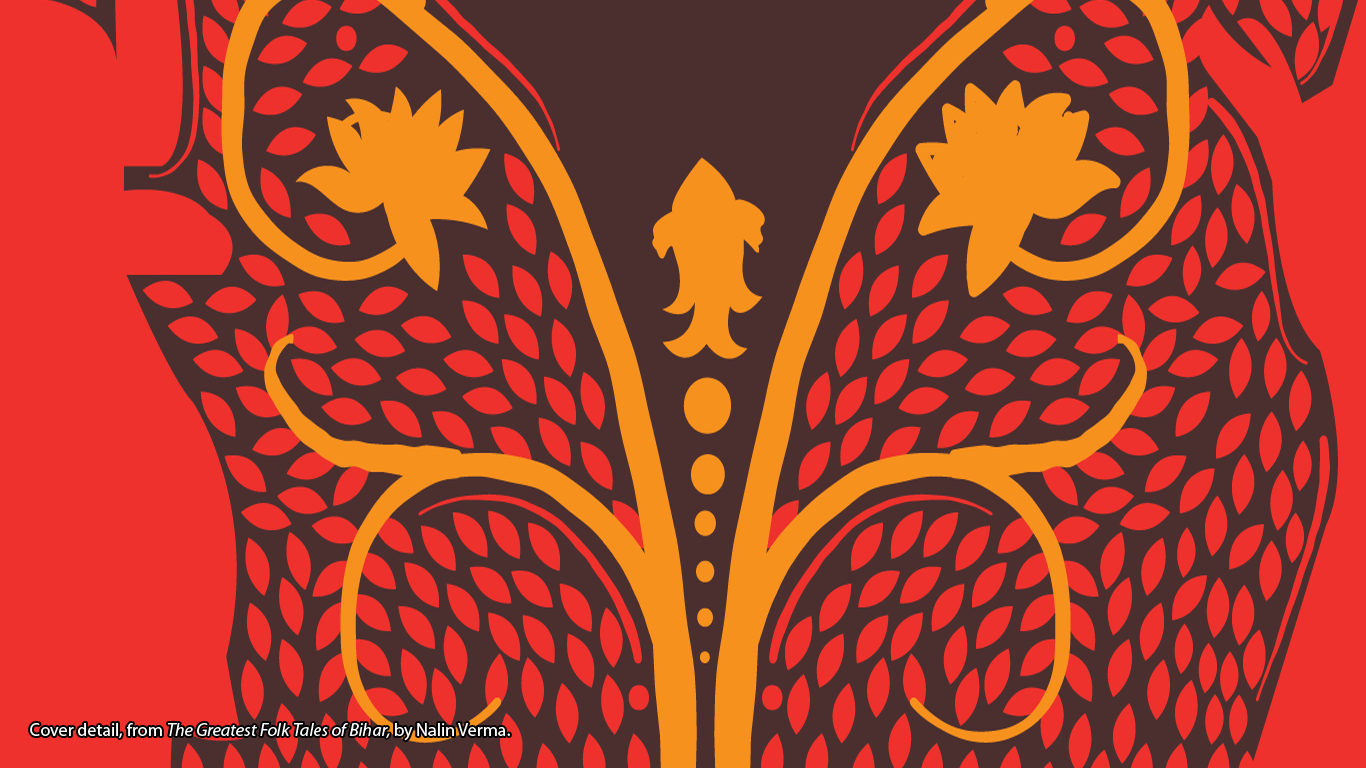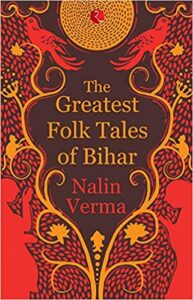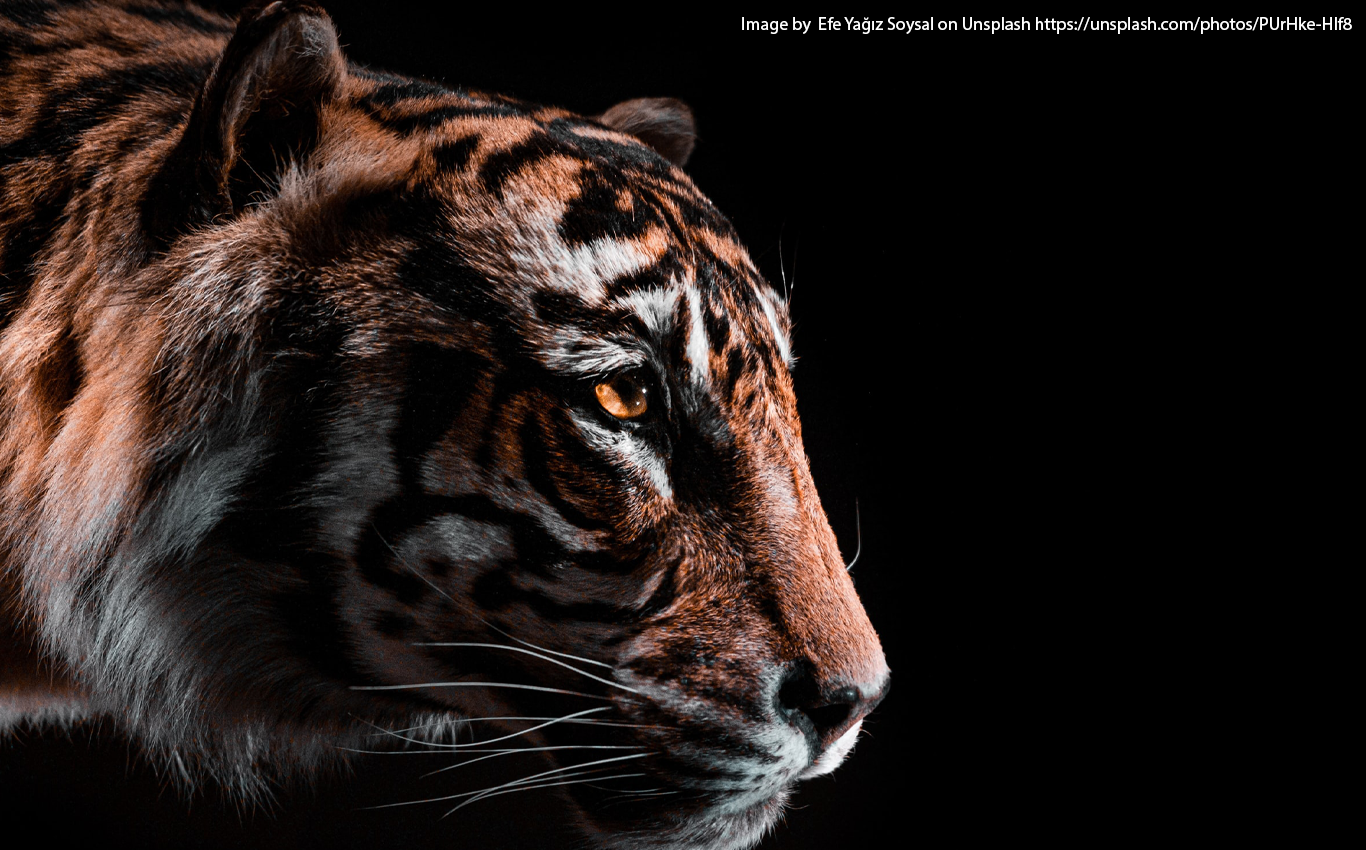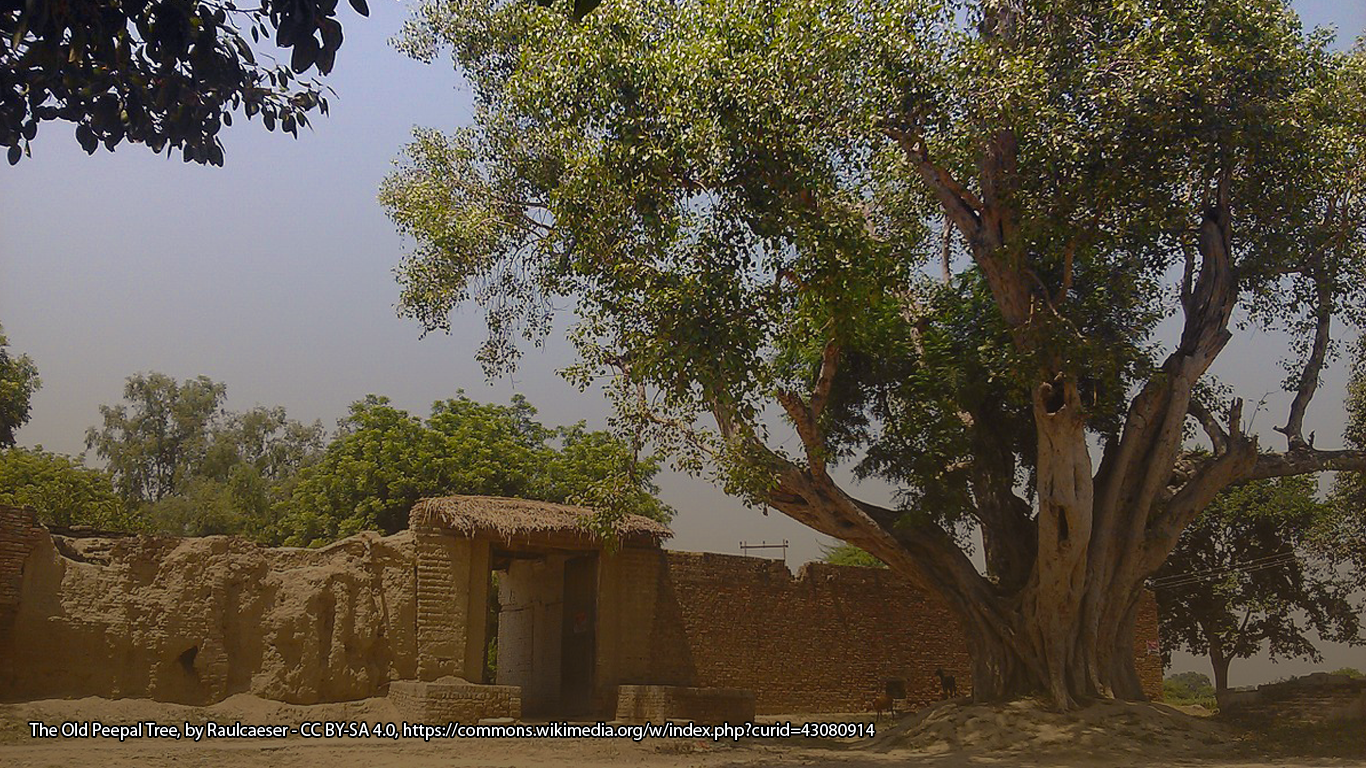Long ago, there lived a sparrow. Once, she picked up a grain of gram and carried it to a stone grinder to break it into two bits. In the process of grinding, a part of the grain came out while the rest of it remained stuck in the wooden pricket that worked as the grinder’s pivot.
The sparrow repeatedly pecked into the pricket, trying to extricate the trapped morsel, but failed. Exhausted, she rushed to a woodcutter and pleaded, ‘O woodcutter! Rip the pricket. My crumb is in the pricket. What shall I eat and what shall I carry for my journey overseas?’
The woodcutter, agitated at the bird’s request, retorted, ‘Get lost! Am I a fool that I will rip the whole pricket for a piece of grain?’
The sparrow, too, lost her temper. She approached the king and pleaded, ‘O king! Punish the woodcutter. The woodcutter wouldn’t rip the pricket. My crumb is in the pricket. What shall I eat and what shall I carry for my journey overseas?’
The king rejected the sparrow’s plea, arguing that it was unjust to punish the woodcutter for a morsel of grain. Fluttering and chirping, the sparrow went to the queen and entreated, ‘O queen! Counsel the king. The king wouldn’t punish the woodcutter. The woodcutter wouldn’t rip the pricket. My crumb is in the pricket. What shall I eat and what shall I carry for my journey overseas?’
The queen, too, refused to entertain the sparrow’s request, ‘I can’t counsel the king for such a small thing.’
The sparrow then went to a snake and pleaded, ‘O snake! Bite the queen. The queen wouldn’t counsel the king. The king wouldn’t punish the woodcutter. The woodcutter wouldn’t rip the pricket. My crumb is in the pricket. What shall I eat and what shall I carry for my journey overseas?’
‘Are you insane? How can I bite the queen for a morsel of grain?’ hissed the snake, turning down the sparrow’s plea. Disappointed, the sparrow went to a stick and begged, ‘O stick! Kill the snake. The snake wouldn’t bite the queen. The queen wouldn’t counsel the king. The king wouldn’t punish the woodcutter. The woodcutter wouldn’t rip the pricket. My crumb is in the pricket. What shall I eat and what shall I carry for my journey overseas?’
The stick, too, refused to help the sparrow. Not willing to give up hope, she shouted out to the fire, ‘O fire! Burn the stick. The stick wouldn’t kill the snake. The snake wouldn’t bite the queen. The queen wouldn’t counsel the king. The king wouldn’t punish the woodcutter. The woodcutter wouldn’t rip the pricket. My crumb is in the pricket. What shall I eat and what shall I carry for my journey overseas?’
‘Get out. I will not burn the stick for a morsel of grain,’ shouted back the fire.
The sparrow approached the ocean, ‘O ocean! Extinguish the fire. The fire wouldn’t burn the stick. The stick wouldn’t kill the snake. The snake wouldn’t bite the queen. The queen wouldn’t counsel the king. The king wouldn’t punish the woodcutter. The woodcutter wouldn’t rip the pricket. My crumb is in the pricket. What shall I eat and what shall I carry for my journey overseas?’
As the ocean snubbed the sparrow, she flew to an elephant. ‘O elephant! Please swallow the ocean. The ocean wouldn’t extinguish the fire. The fire would not burn the stick. The stick wouldn’t kill the snake. The snake wouldn’t bite the queen. The queen would not counsel the king. The king wouldn’t punish the woodcutter. The woodcutter wouldn’t rip the pricket. My crumb is in the pricket. What shall I eat and what shall I carry for my journey overseas?’
Already thirsty, the elephant thought it could achieve two goals if it fulfilled the sparrow’s wish. Its thirst would be quenched and the sparrow would be obliged. So, the elephant headed towards the ocean with the sparrow in tow.
The ocean was scared to see the elephant approach it menacingly. The ocean implored, ‘Do not swallow me, please. I will extinguish the fire.’
The ocean went to the fire. The fire got nervous and pleaded, ‘Do not extinguish me, please. I will burn the stick.’
As the fire leapt to burn the stick, the stick begged for mercy, ‘Do not burn me, please. I will kill the snake.’
When the stick went to kill the snake, the snake pleaded, ‘Have mercy on me, please. I will bite the queen.’
As the snake crawled to dig its fangs into the queen, the queen said, ‘Spare my life, please. I will counsel the king.’
When the queen went to counsel the king, he said, ‘Cheer up, dear. I will punish the woodcutter.’
As the king called the woodcutter to punish him, the woodcutter said, ‘Do not punish me, please. I will rip the pricket.’
When the woodcutter went to rip the pricket, the pricket pleaded, ‘No one should rip me apart. I am splitting on my own.’
The pricket split, throwing the crumb out. The sparrow picked up the crumb and flew off merrily.
Be positive and never give up—success will come to you.
The Greatest Folk Tales of Bihar
The Greatest Folk Tales of Bihar is a new book of stories by Nalin Verma from the Bihar region of India.
There are human skulls speaking to men. There are demonesses falling in love with their prey. There is a jackal pretending to be a priest and a donkey that goes beyond his duty. These are stories from the soil of Bihar, from the land of Bhojpuri and Maithili—stories that have traversed centuries and created a catalogue of oral wisdom. The Greatest Folk Tales of Bihar is a collection of timeless tales that have been told through generations, are adored for being a literature and treated as sacred testament of village wisdom. The stories are a source of joy for younger generations and a celebration of the past for the older ones. Firmly grounded in village life with characters both human and animals, The Greatest Folk Tales of Bihar is an enchanting read to draw you into a world of its own.







